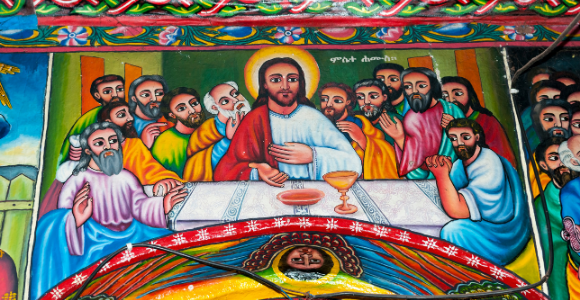Welcome readers! Please subscribe through the buttons on the right.

(Read this series from the beginning at Part 1 and Part 2.)
Again, the synoptic gospels, Matthew, Mark, and Luke, offer consistent political comparisons between Jesus’ vision for human society (God’s just future) and the status quo of the society Jesus found himself in instead. This makes me wonder how our own contemporary society’s political goals would fare if we compared and contrasted the values of the American dream with the values we find in the Jesus story.
How does imprisoning children on the southern border or anywhere else in the country compare with Jesus’ vision of world where no one is illegal?
How does forgiving student loan debt compare with Jesus’ vision for world where all debts are cancelled?
How does universal healthcare or health care as a human right compare with Jesus’ life of healing those on the margins of his society?
How does eliminating poverty or closing the vast wealth gap between classes and races compare with Jesus’ gospel of the kingdom that belongs to the poor?
How do reparations for America’s heritage of slavery and genocide compare with Jesus’ call for those with ill-gotten wealth to sell everything and give the proceeds to those they exploited?
How do police reform or abolition compare to a Jesus story where the central figure was the victim of state brutality himself?
Do the values of the Jesus story offer us something better today than the status quo the privileged and elite still desperately hold on to?
I don’t mean that our society should become Christian. Christianity has proven unsafe when it comes to protecting vulnerable human populations from harm: women, people of color, LGBTQ people, and many others have been harmed and their stories have yet to be listened to in many sectors of Christianity today. Even the sacred text of Christianity has been too vulnerable to abuse by those with power, prejudice and bigotry. The recent murders in the Atlanta spas are yet another sad example. (Sadly White and/or colonial Christianity is the only form of the faith most of the world has been touched by.) Whatever one’s interpretation of Christianity’s sacred texts, the voices of those who have been harmed are still needed to ensure our interpretations are genuinely life-affirming and life-giving.
If Luke could compare Roman economic, political, and social policy with Jesus’s teachings, then certainly we can do so with economic, political, and social policies in our time. And if we see progressive social movements resonate with the values we find in the Jesus story, then certainly all of us who claim that story as the heart of our faith tradition could check ourselves. We could choose to be last in line to oppose those progressive visions for American society rather than being among the loudest opponents of distributively just change.
There are exceptions to this pattern. It burdens me that they are merely exceptions. Support for progressive movements that resonate with Jesus’ distributively just economic, political and social values could be the rule for Jesus followers today, if we would choose it. And conscious choices are exactly what it will take.













